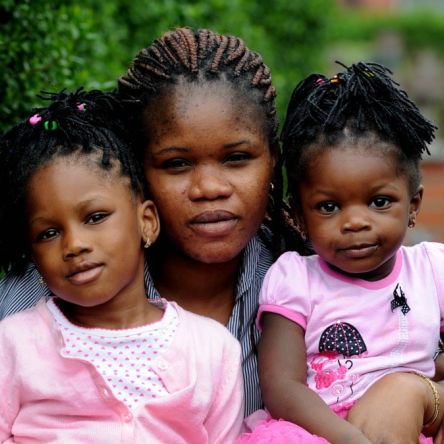A Nigerian asylum seeker, who was meant to be deported last Friday has had her stay extended following an enquiry into her case.
31 year old Afusat Saliu, fled her native Nigeria in 2011, afraid that her daughters, one of whom she was pregnant with at the time, would be subjected to Female Genital Mutilation or FGM, something that the United Nations had deemed as torture.
Initially, Saliu’s application for Asylum was rejected however following a letter from her local MP George Mudie to the security and immigration minister James Brokenshire she has been granted temporary reprieve from being deported to Nigeria.
The public also showed their support by signing an online petition, which garnered over 100,000 signatures, imploring the home office to review the new evidence that had been submitted for her case. A protest against her deportation was also held on Tuesday.
Saliu, who at the moment lives in Leeds and is not allowed to work because of her status has dedicated her time to help student nurses, teaching them to recognise the signs of FMG.
She herself underwent FMG, which caused complications during both her pregnancies and does not want her daughters to experience what she had. She is convinced that if she is returned to Nigeria her daughters now aged 1 and 3 will be subjected to FGM : “I don’t want them to be mutilated,” she said. “I know it will happen if I have to go back with them, I know it because it is the culture of my family.
“They believe in it and I will not be able to do anything about it. Every woman should stand up for her children and do whatever is necessary to protect them from something like this.”
FGM, which is illegal in the UK and is being campaigned against by British home secretary Theresa May, is a practice that is rife in Nigeria, with the country accounting for a quarter of the cases worldwide. The World Health Organisation describes FGM as “all procedures involving partial or total removal of the external female genitalia or other injury to the female genital organs for non-medical reasons”. According to Forward UK the procedure, which is predominant in African countries, is usually carried out by an older woman with no medical experience. Antiseptics and anesthetics are rarely used. It is thought that approximately 100-140 million women have undergone FGM world wide with a 3 million girls being at risk. The practice has many long term affects including damage reproductive damage, infection, and complications during pregnancy and child birth.
A Home Office spokesman said: “The UK has a proud history of granting asylum to those who need our protection and we consider every claim for asylum on its individual merits. We believe that those who fail to establish a genuine fear of persecution should return home voluntarily. If they do not, we will enforce their removal.”










